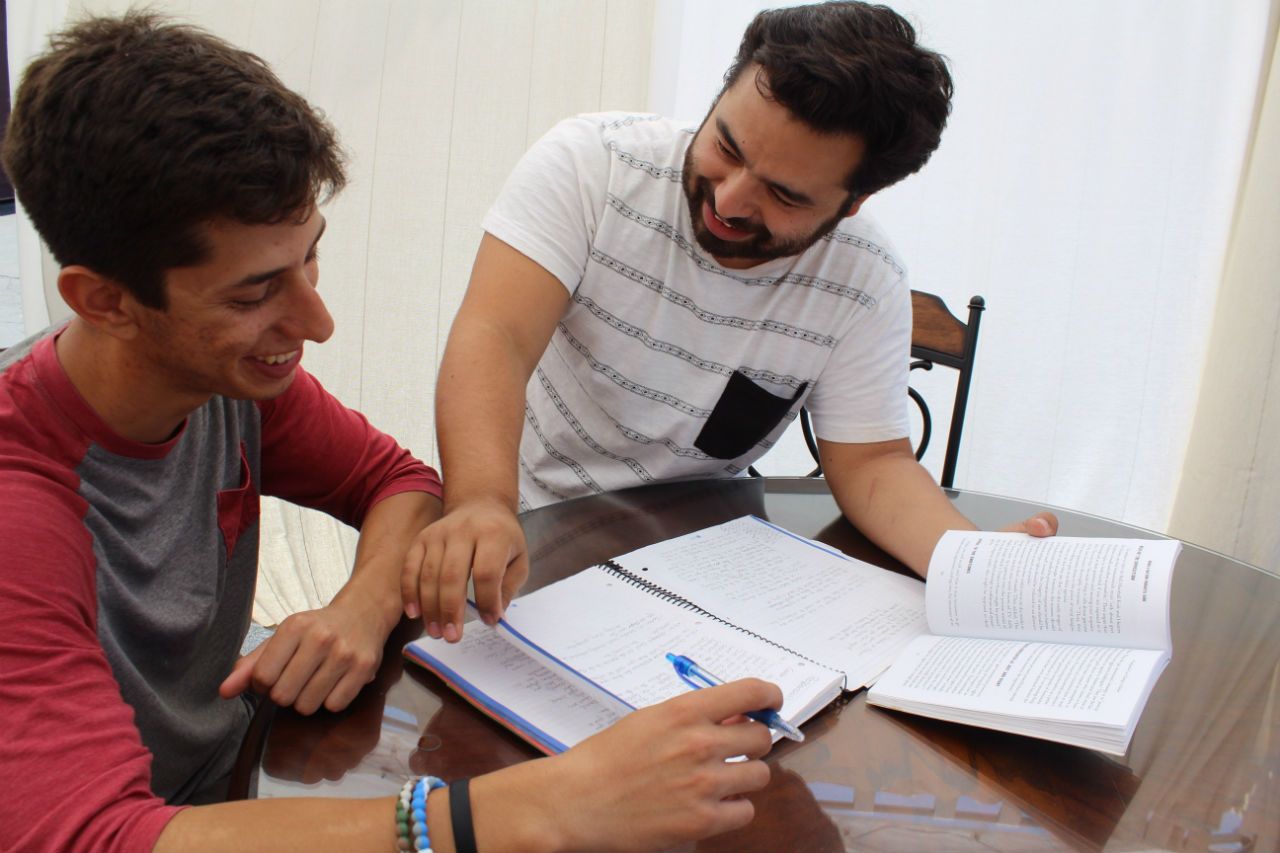How to Assess Your Language Proficiency
When you have been learning a language for a little while, sometimes the best motivation to keep going is to find out what your current level is, just to see how far you have come. Here are some ways you can check your progress.

Photo via Flickr
Know yourself
If you have no specific level to be aiming for then a little informal self-assessment is a good place to start. Try reading an article from a newspaper, listening to a podcast, or watching a TV show that previously you would have had no confidence to; how much do you now understand? Or if you are looking for something that has a more formal feel without the pressure of an actual exam, try using practice test papers as a part of your studies. Choose a paper that is higher than the level you are currently studying at. If you can barely answer any it isn’t time to move on yet, but if you answer a few then well done, you can start challenging yourself with more difficult work!

Photo via Wikimedia
Formal level testing
One of the more surefire ways of testing just how good you are at a language is to take a formal test. There are numerous scales used across the world to demonstrate the level of language proficiency. Three of the most widely known and recognised are:
Interagency Language Roundtable Scale (ILR). Developed by the U.S. State Department’s Foreign Service Institute, this test was initially used to determine the proficiency of staff in U.S. government agencies. The scale runs from 0 to 5, where 0 is no proficiency and 5 is functionally native proficiency.
American Council on the Teaching of Foreign Languages Proficiency Scale (ACTFL)
A second test developed in the U.S., this scale places students on one of four levels, novice, intermediate, advanced, and superior. There are very specific guidelines to follow which will help determine which level you are at.
Common European Framework of Reference (CEFR)
Rapidly becoming the go-to test for language level testing, the CEFR was developed by the Council of Europe to standardise tests across the continent so that assessment was accurate in each European language. The scale runs from A0 to C2, with A0 being no proficiency and C2 near native. The scale also comes with a more recognisable global indicator of basic user (A) through to proficient user (C).
Problems with official level testing
The ILR, ACTFL, and CEFR are excellent gauges of where you are in your language skills, though you will have to rely purely on self-assessment and will not be given any pointers on how to improve. And for the CEFR in particular there is no single CEFR test; you have to find a test in the language you are learning before you even start! It’s all very well taking a test and being given a number to say where you fit into a scale, but what does that really tell you?
Language Trainers placement tests
Language Trainer level tests are a little different! Our online free language placement tests offer an easy comparison against a number of international proficiency levels so you have an easy reference wherever you are in the world. This includes the Canadian Language Benchmarks (CLB) that are used to determine English levels for immigrants to Canada. Why is this comparison important? Because by taking one of our tests you can be sure your language level is a standard that is recogniseable wherever you need to be; you might be a B1 on the CEFR scale if you live in Spain, but what would that mean if you were in Australia, for example?
Language Trainer placement tests give you blocks of ten multiple-choice questions, at the end of which you can see how many questions you have right and your level. There are 70 questions in total, the completion of which will give you the most accurate picture of your current language level.

Photo via Pexels
A well-rounded approach
Of course, you cannot sufficiently test your language proficiency with one simple test; you might excel in writing in a language but struggle when making simple conversation. To get a comprehensive understanding of where you are with your language learning you will need to test your reading, writing, listening, and speaking skills, which is something you can do with one of our tutors. Many language teachers like to assess your level when you begin a course with them so they can establish what you know already and offer guidance for the areas you need to work on.
Our courses are tailor-made specifically for your schedule and needs, with expert tutors ready to help you every step of the way. Why not send us a quick inquiry to find out more?
